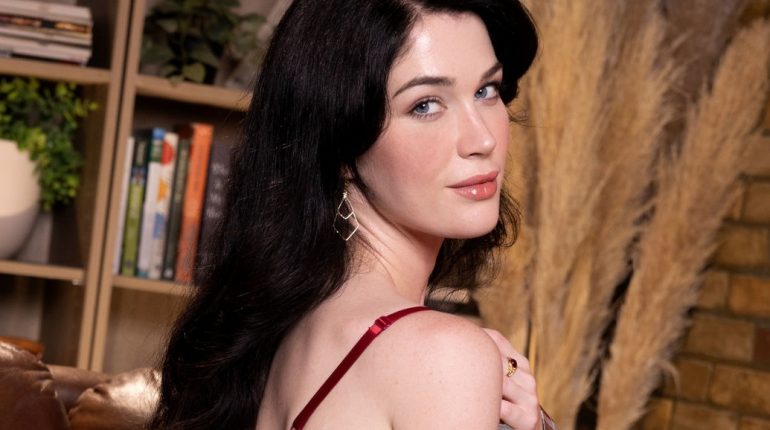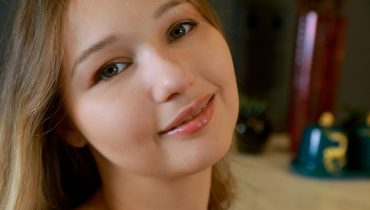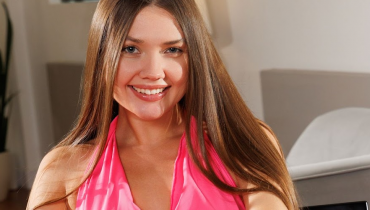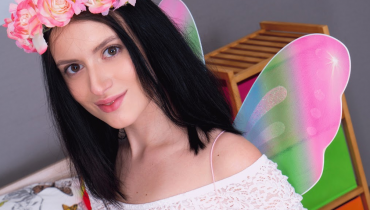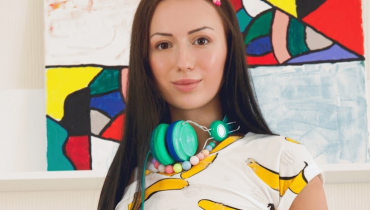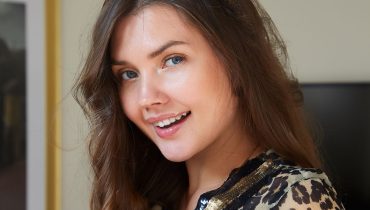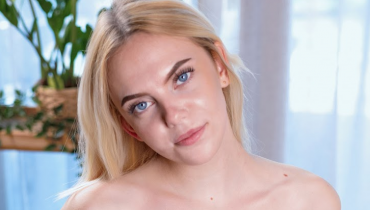For years, Lily Adams believed she could function on five hours of sleep. “I used to brag that I didn’t need much rest,” she recalls. “Late nights were my quiet hours — the only time I felt in control.” But by her early thirties, that rhythm collapsed.
“My mind was racing, my skin looked dull, and I was constantly anxious,” she says. When her doctor mentioned the phrase sleep hygiene, she laughed. “I thought hygiene meant brushing my teeth — not how I slept.” That misunderstanding marked the beginning of her transformation from chronic exhaustion to peaceful, stress-free nights.
When Rest Becomes a Luxury
Lily’s story mirrors millions of Americans struggling with what experts call “revenge bedtime procrastination” — staying up late to reclaim time lost to busy days. “I’d scroll for hours,” she says. “It felt like freedom, but I was robbing myself of recovery.” The Sleep Foundation notes that more than 35% of adults in the U.S. get less than seven hours of sleep per night, far below the recommended amount. Chronic sleep deprivation doesn’t just cause fatigue; it increases the risk of anxiety, heart disease, and cognitive decline.
When Lily began experiencing constant tension headaches and irritability, she assumed it was stress. “But my therapist asked how I was sleeping,” she says. “I told her: ‘terribly.’ That’s when she introduced me to the concept of sleep hygiene — small habits that teach your body to rest again.”
Understanding Sleep Hygiene
Sleep hygiene isn’t about perfection; it’s about consistency. According to Harvard Health Publishing, good sleep hygiene involves regulating the body’s circadian rhythm — the internal clock that controls when we feel alert or sleepy. Disruptions from screens, caffeine, and irregular schedules confuse that clock, leading to restless nights.
“I used to fall asleep with my laptop open,” Lily admits. “Emails, TikTok, even Netflix — I’d tell myself it was relaxing, but it was stimulation.” When she began studying how blue light suppresses melatonin, the hormone that signals sleep, she changed her habits. “I bought a cheap alarm clock and started leaving my phone in another room,” she says. “The first week was awful — my brain panicked without that dopamine hit. But by week two, I was asleep before midnight for the first time in years.”
Rebuilding Her Routine: From Chaos to Calm
Lily started her “sleep rehab” by rethinking her evenings. “I made a rule: no screens one hour before bed,” she says. That hour became sacred. She replaced scrolling with stretching, reading, or gentle journaling. “I’d write three things I was grateful for — not for Instagram, but for myself.” Gratitude journaling, according to a study published in the Journal of Behavioral Medicine, can lower heart rate and stress hormones, priming the body for relaxation.
She also adjusted her environment. “I invested in blackout curtains, a white noise machine, and lavender oil,” she says. “It felt indulgent at first, but it’s really maintenance for the mind.” Research from the Mayo Clinic supports her approach: light, sound, and temperature are major factors in sleep quality. A cool room — about 65°F — helps signal the body that it’s time to rest.
The Power of Routine and Ritual
“I never realized how much my body craved rhythm,” Lily says. Now, she follows a routine like clockwork: shower, herbal tea, reading, lights out. “At first it felt silly to have a bedtime as an adult, but I realized kids sleep better because they have structure.” Within a month, her insomnia faded, and her mood stabilized. “It wasn’t instant magic — it was slow healing.”
She also changed her mornings. Instead of checking emails immediately, she started walking outside for natural sunlight exposure. “Morning light resets your circadian rhythm,” she explains, referencing data from the Centers for Disease Control and Prevention (CDC). “Now I get my best work done before noon — because I finally sleep like a human.”
The Science of Stress-Free Sleep
As Lily learned, sleep and stress form a vicious cycle. Poor sleep raises cortisol — the stress hormone — while high stress disrupts sleep. “It’s a feedback loop,” she says. Breaking it required both physiological and psychological tools.
One of her most effective techniques was deep breathing, specifically the “4-7-8” method popularized by Dr. Andrew Weil of Harvard Medical School. “You inhale for four seconds, hold for seven, and exhale for eight,” she explains. “It’s impossible to stay anxious when you’re focused on breathing.” She also uses guided relaxation sessions from apps like Calm and Headspace. “AI tools can actually read your voice and recommend meditation tracks that match your stress level,” she notes. “It sounds futuristic, but it works.”
Nutrition played a surprising role too. “I used to have wine before bed to relax — big mistake,” she says. Alcohol might help you fall asleep faster, but it reduces REM sleep — the restorative phase. Instead, she swapped late-night snacks for a magnesium-rich smoothie with banana and almond milk. “It’s comfort without sabotage.”
Dr. Helen Ruiz from the Cleveland Clinic agrees: “Diet and sleep are intimately connected. Avoid caffeine after 2 p.m., minimize sugar, and prioritize magnesium and tryptophan sources like oats, turkey, and dark chocolate.” Lily smiles: “I’ll never say no to chocolate again.”
Mindset: The Missing Piece of Sleep Hygiene
Even with the perfect routine, Lily struggled with racing thoughts. “I’d lie in bed thinking about everything — work, bills, regrets, random memories,” she says. That’s when she discovered cognitive behavioral therapy for insomnia (CBT-I), a science-based approach recommended by the National Institutes of Health. “It teaches you to break negative sleep associations — like equating bed with frustration.”
Her therapist had her get out of bed whenever she couldn’t sleep after 20 minutes. “It sounds counterintuitive,” she says, “but it retrains your brain. The bed becomes a place for rest again, not worry.” She also stopped watching the clock. “Time anxiety is real — you see it’s 3 a.m. and think, ‘I’ll be exhausted tomorrow.’ That thought alone spikes cortisol. Now, I turn my alarm face down.”
Over time, Lily reframed her entire relationship with rest. “I stopped seeing sleep as a task and started seeing it as therapy,” she says. “It’s not something you earn — it’s something your body deserves.”
When Sleep Becomes Self-Love
Lily now shares her journey on social media, where she encourages other women to stop glamorizing exhaustion. “We live in a hustle culture,” she says. “We drink caffeine to wake up and wine to wind down — it’s madness. Sleep is the real luxury, and it’s free.”
She also advocates for corporate wellness initiatives that respect biological needs. “Imagine if offices scheduled meetings after 10 a.m. to align with natural alertness cycles,” she muses. “We’d have fewer burnout cases and better creativity.”
Her followers often ask what changed most since improving her sleep. “Everything,” she says. “My focus, my relationships, my skin — even how I eat. Rest heals all systems.” A 2022 NIH study found that consistent sleep boosts immune response by up to 30%. “No supplement can replace that,” she adds. “Sleep is nature’s best antioxidant.”
Lily’s Practical Guide to Better Sleep Hygiene
- Keep a regular schedule: Go to bed and wake up at the same time, even on weekends. “Your body loves predictability,” she says.
- Design your sleep space: Dark, cool, and quiet. “Your room should feel like a cave, not a conference room.”
- Detach digitally: No phones, tablets, or work emails in bed. Use an analog alarm clock.
- Unwind with intention: Stretch, breathe, read something light. “Scrolling isn’t rest — it’s stimulation in disguise.”
- Mind your diet: Avoid caffeine and alcohol near bedtime. Choose calming foods like oats, nuts, and herbal teas.
- Address your thoughts: Practice mindfulness or journaling before bed to release the day’s noise.
Her favorite ritual now includes reading a few pages of a physical book, sipping chamomile tea, and playing soft ambient sounds. “When you give your brain signals that it’s safe, it lets go,” she says. “That’s the whole point — safety and surrender.”
Results That Go Beyond Sleep
Six months after changing her habits, Lily’s transformation was undeniable. “I wake up before my alarm, my anxiety is manageable, and my creativity is back,” she says. Her doctor confirmed measurable changes: lower blood pressure, better focus, and balanced cortisol levels. “Sleep isn’t just rest — it’s restoration,” she says. “When you fix your nights, your days start working again.”
Now, when friends complain of stress or burnout, Lily doesn’t recommend supplements or productivity hacks — she asks about their bedtime. “You can’t pour from an empty cup,” she says. “And most of us are running on fumes.”
She’s quick to add that perfection isn’t the goal. “Sometimes I still stay up late watching a show,” she laughs. “But the difference now is awareness. I know how to recover, and I know what balance feels like.”
Final Thoughts from Lily
“Sleep hygiene sounds clinical,” she says, “but it’s really about kindness — to yourself.” Her advice is simple yet profound: “Treat your body like someone you love. You wouldn’t deprive them of rest, so why deprive yourself?”
As Lily reflects on her journey, her voice softens. “I used to think success meant doing more,” she says. “Now I know it means resting enough to do it well.” For her — and for anyone chasing peace in a restless world — a good night’s sleep is not indulgence. It’s survival.
